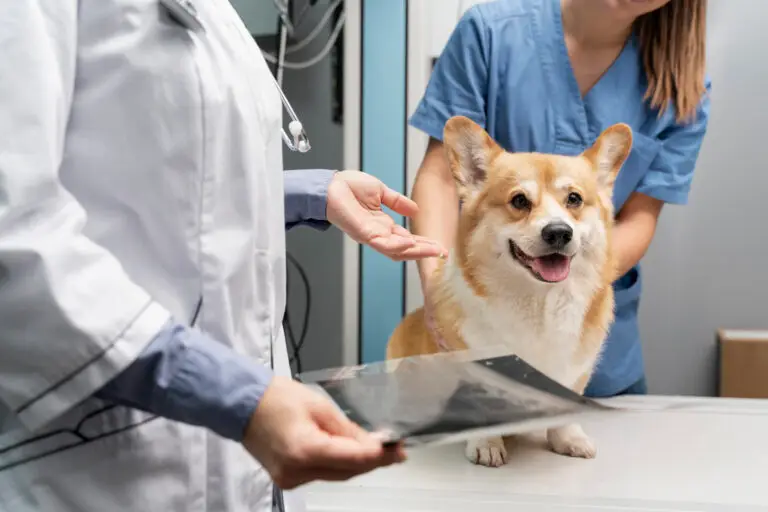How to Market Surgical Tools to ENT and GP Clinics?
Table of Contents
Introduction
Selling surgical tools to ENT and GP clinics is a growing opportunity in India.
These clinics need specific instruments for minor procedures and regular patient care.
But just having products is not enough.
You must understand their needs and market smartly.
ENT clinics often look for tools that support procedures like nasal endoscopy, ear suction, or tonsil surgeries.
General Practitioners (GPs), on the other hand, need basic tools for wound care and outpatient treatment.
In Tier 2 and Tier 3 cities, these healthcare MSMEs are expanding fast.
So, knowing how to position your surgical tools, where to promote them, and how to build trust with doctors is the key to business growth.
This article explains step-by-step how to target ENT and GP clinics, both online and offline.
You’ll learn how to use digital platforms, build relationships, and provide value-added services that help you stand out.
Let’s explore how to grow your surgical
1. What are the most effective marketing strategies for selling surgical tools to ENT and GP clinics in India?
To sell surgical tools to ENT and GP clinics in India, your marketing approach needs to be practical, targeted, and trust-building.
These clinics are often busy, so your message should be clear and helpful from the start.
Let’s break down some of the most effective strategies:

1. Email Marketing That Educates
Start with a clean email list of verified ENT and GP clinics in your area or region.
Your emails should not just be about prices or catalogs.
Instead, try sending short, useful tips.
For example, “3 essential ENT surgical tools every clinic should have.” Add product videos, links to your WhatsApp, or a one-click demo booking.
Email marketing works best when it’s consistent, informative, and personal.
2. LinkedIn Outreach for Decision Makers
Many clinic owners or procurement heads are on LinkedIn.
Connect with ENT surgeons, general physicians, or clinic managers.
Once connected, avoid direct selling at first. Share updates about your tools, case studies, or a new product feature.
Use LinkedIn messages to invite them to webinars, demo videos, or trade shows.
Example message: “Hi Dr. Sharma, we help ENT clinics like yours get reliable surgical tools with doorstep service. Can I share a short catalog with you?”
3. Local Rep Visits Build Trust
In India, especially in Tier 2 and Tier 3 cities, local representatives still play a big role.
A local sales rep who visits the clinic, understands their needs, and shows products in person creates a lasting impression.
This works especially well for solo GP clinics and smaller ENT centers.
They appreciate face-to-face guidance and after-sales support.
Key Tip: Train your reps not just on products but on handling objections like price, quality, or delivery timelines.
4. Product Demo Drives Conversion
One of the best ways to convert interest into a sale is to offer a free product demo.
You can do this in person or through a simple WhatsApp video.
For example, show how a nasal speculum or ENT headlight works and compare it with competitors.
Let doctors test the feel, grip, and ease of use. Many clinics buy after just one hands-on demo.
Bonus tip: Offer a trial pack or starter kit to build trust with new customers.
By combining digital and personal strategies, you can effectively market surgical tools to both ENT and GP clinics. Clinics don’t just buy based on price.
They buy when they trust your product and your service.
2. How can suppliers highlight the specific benefits of their surgical tools for ENT procedures like sinus or laryngeal surgeries?
To effectively market surgical tools to ENT clinics, you must clearly show how your tools help doctors perform better and help patients heal faster.
ENT procedures, especially sinus or laryngeal surgeries, need very high precision.
So, you should highlight features that make these tools stand out in real practice.
Here’s how to do it in simple steps:
1. Talk About Precision
ENT surgeries involve delicate areas like the nose, throat, or inner ear. These are small spaces, so the tools must be extremely sharp, slim, and easy to handle. When promoting your surgical tools, highlight:
- Smooth grip handles for steady control
- Fine tips and blades for clean cuts
- Minimal tissue damage during use
You can say: “Our forceps and scissors are crafted for micro precision during sinus and nasal surgeries, giving doctors full control in tight areas.”
2. Show How the Tools Support Minimally Invasive Surgery
Many ENT clinics are now doing day-care surgeries.
So, they prefer tools that help them perform faster and with fewer cuts or stitches.
If your product supports this, tell them:
- “This nasal endoscope works perfectly for minimally invasive sinus procedures.”
- “Our laryngeal mirrors and retractors support procedures without deep cuts.”
This is a huge selling point because it reduces surgery time and allows doctors to treat more patients.
3. Highlight Faster Patient Recovery
When ENT tools help reduce trauma or bleeding, patients recover faster.
Clinics love this because happy patients refer more people. So, emphasize:
- Less post-surgery discomfort
- Fewer stitches or dressing changes
- Quicker return to normal speaking or breathing
You can write in your catalog or say in a pitch: “Using our precision ENT surgical tools, doctors have reported up to 30% faster healing in nasal and throat procedures.”
4. Use Before-After or Doctor Testimonials
If possible, include real feedback from ENT doctors who use your products.
For example:
“We’ve been using your sinus suction tips for three months now. They help reduce bleeding and make the procedure smoother.”- Dr. Mehta, Pune
Testimonials help new clinics trust you without testing too much.
Final Tip: Bundle the Message with Visuals
Send short videos, diagrams, or one-page product benefits sheets that explain how each tool works for ENT-specific procedures like septoplasty, FESS, or vocal cord biopsy.
This makes your product feel like it was made just for them.
By clearly explaining how your surgical tools make ENT surgeries more precise, less invasive, and better for patients, you give clinics a strong reason to choose your brand over others.
3. What are the key selling points for surgical instruments used by general practitioners?
When marketing surgical tools to general practitioners (GPs), your message should be simple and direct.
GPs don’t perform complex surgeries like hospitals do.
But they still need reliable tools for minor procedures, wound care, and first-aid support.
So, your focus should be on tools that are easy to use, practical, and cost-effective.
Here are the main selling points you should highlight when selling surgical instruments to GP clinics:
1. Ease of Use
GPs often work alone or with limited staff.
So, their tools must be simple to handle. You should highlight:
- Instruments that don’t need any special training
- Tools with comfortable grips and smooth handling
- Lightweight and compact designs for quick procedures
You can say:
This dressing forceps is designed for quick wound cleaning. No extra effort or support staff needed.”
2. Multi-Functionality
Space is limited in most GP clinics. So, tools that serve more than one purpose are very useful. Mention instruments like:
- Scissors that cut both gauze and skin
- Scalpels with changeable blades
- Basic procedure kits that include gloves, forceps, and swabs in one pack
GPs appreciate tools they can use across multiple types of patients in a single day, from cleaning wounds to draining abscesses.
3. Low Maintenance
Unlike large hospitals, most GP clinics don’t have a sterilization department.
So, low-maintenance or disposable tools are a big plus.
Highlight features like:
- Rust-resistant stainless steel
- Easy to clean with regular disinfectants
- Disposable options for high-usage items like scalpels or syringes
You could say:
“Our surgical scissors are made from high-grade steel that doesn’t rust, even with daily use.”
4. Affordability
Cost matters. GPs work on a tight budget.
They don’t want premium surgical tools with features they won’t use. So, promote:
- Reasonable pricing
- Starter kits for minor procedures
- Bulk purchase discounts or combo packs
Sample pitch:
“This basic surgical tool kit costs less than ₹500 and covers all your clinic’s daily needs — no overpaying for unused features.”
5. Ready Availability and Quick Delivery
If a GP runs out of tools, they can’t wait for weeks.
So, mention:
- Local delivery options
- Tie-ups with distributors in their city
- 24–48 hour restocking for fast-moving tools
Final Tip: Use Real-Life Scenarios
Explain your product through everyday examples:
“You have a patient with a small cut. Instead of juggling 3 different items, this all-in-one dressing kit saves time.”
That kind of message connects well with GPs.
By focusing on usability, multi-purpose design, low cost, and easy restocking, you’ll build trust with general practitioners and make your surgical tools the go-to choice for their everyday clinic needs.
4. How can healthcare MSMEs build relationships with ENT specialists and GPs to boost trust and sales?
Building strong relationships with ENT specialists and GPs is key for any healthcare MSME looking to grow sales of surgical tools.
In this space, trust matters more than just pricing.
Doctors don’t buy from someone they don’t know. So, focus on connections before conversions.
Here’s how you can build lasting relationships and boost sales:
1. Start with Clinic Visits
One of the easiest ways to begin is by visiting ENT and GP clinics in your area.
Go in person. Introduce yourself. Carry brochures, product samples, or even a demo kit.
- Keep the conversation short and useful
- Ask about their most-used instruments
- Offer quick comparisons with what they currently use
Tip: Don’t push for a sale on the first visit. Offer to follow up in a few days with a free sample or trial.
2. Engage Local KOLs (Key Opinion Leaders)
ENT and GP specialists who are respected in their field have influence over others.
These may be:
- Senior ENT consultants in hospitals
- Experienced general physicians in the area
- Doctors who teach or train other GPs
Approach them with product samples. If they find your surgical tools useful, they’ll recommend you to others.
Bonus: A single KOL endorsement can open doors to 10–15 clinics in their network.
3. Distribute Free Samples
Give away small sample kits of commonly used items like:
- Disposable forceps
- ENT diagnostic tools (like tongue depressors, otoscope covers)
- Gloves or cotton rolls
Let the doctor try them before making a purchase decision. This builds trust and gives them confidence in your quality.
4. Host Small Workshops or Demos
Arrange small training or product introduction sessions for 5–10 doctors at a time. Use:
- A nearby clinic meeting room
- A co-working space
- Even a Zoom call if physical meetups are hard
In these sessions, you can show how your surgical tools work, explain their benefits, and answer any questions.
Make it short (30–45 minutes), provide refreshments if in person, and give a follow-up discount to attendees.
5. Be Consistent with Follow-Up
Relationships are built over time. After a first visit or a workshop:
- Send a follow-up message (WhatsApp or email)
- Offer a small reorder discount
- Ask for feedback on the sample kit
- Keep them updated about new arrivals
Being available and responsive is often more valuable than giving the lowest price.
6. Offer Credit or Easy Payment Options
Especially in Tier 2/3 cities, many GPs prefer small purchases on credit. Offering:
- BNPL (Buy Now Pay Later)
- Weekly or monthly billing
- Digital invoices via WhatsApp
…can make your brand stand out.
7. Build a Referral Loop
Once you win one doctor’s trust, ask for a referral. GPs and ENTs often refer tools and vendors to their peers.
Say something simple like:
“Doctor, if you find this useful, do you know one or two other clinics I could visit? I’ll bring a demo kit for them too.”
By focusing on personal interactions, educational demos, and strong after-sales support, your MSME brand will earn trust step-by-step.
ENT and GP clinics will not only become repeat buyers but also help you grow through word-of-mouth.
5. Which digital marketing platforms work best for reaching ENT and GP clinics with surgical tool promotions?
To reach ENT and GP clinics with surgical tool promotions, digital marketing can work wonders if used the right way.
But not every platform gives the same results.
Some work better for awareness, while others help you close the sale.
Let’s break it down clearly.
1. WhatsApp B2B Outreach
This is the most direct and personal way to reach doctors.
- You can share product catalogs, images, price lists, and even videos.
- ENT and GP clinics prefer short, clear messages rather than long emails.
- You can quickly answer queries, send offers, and take orders all on the same platform.
Best for: Local reach, fast communication, lead nurturing
Pro tip: Use WhatsApp Business. Add labels (like “New Prospect,” “ENT Buyer”) to organize your follow-ups.
2. LinkedIn
If you’re targeting ENT doctors who are senior, teaching faculty, or private hospital specialists, LinkedIn works well.
- Share professional posts about your surgical tools, especially their benefits in ENT or minor GP surgeries.
- Connect with doctors, hospital procurement heads, or even local medical distributors.
- Join healthcare groups and comment on relevant discussions.
Best for: Building trust, connecting with KOLs (Key Opinion Leaders), branding
Pro tip: Run sponsored posts targeting “ENT Surgeon” or “General Practitioner” job titles in your region.
3. Google Search PPC (Pay-Per-Click Ads)
This is highly effective when clinics are actively looking to buy.
- Target searches like “ENT surgical tools supplier in India” or “buy GP clinic instruments online.”
- Your ad will appear at the top of search results.
- Add clear offers and a strong CTA like “Get a free sample kit.”
Best for: Capturing active buyers, lead generation, and national reach
Pro tip: Use location targeting to only show ads in Tier 1, 2, or 3 cities where you deliver.
4. Email Newsletters (Healthcare-specific)
Email still works if it’s targeted and useful.
- You can tie up with platforms like Docplexus or WhiteCoats that already have verified doctors.
- Share short product spotlights, usage tips, or testimonials from other clinics.
- Include a clickable “Get Samples” button or offer discount codes.
Best for: Awareness, brand recall, occasional promotions
Pro tip: Avoid bulk emailing unknown doctors. Always use segmented, opt-in lists.
What Works Best Together?
To really succeed, combine all four channels:
- Use Google PPC to catch active buyers
- Send WhatsApp messages to warm leads
- Stay visible on LinkedIn for long-term trust
- Use email newsletters for periodic brand recall
Each platform plays a different role in your marketing funnel, from awareness to action.
By using these tools wisely, you can grow your healthcare MSME, build trust with ENT and GP clinics, and promote your surgical tools without wasting time or budget.
6. What role do medical conferences and trade events play in marketing surgical tools to specialty clinics?
Medical conferences and trade events play a very important role when it comes to marketing surgical tools to ENT and GP clinics.
These are not just places to show products; they help you build trust, get new leads, and stand out from other sellers.
1. Lead Generation Made Easy
Conferences are full of your target customers: ENT doctors, general practitioners, clinic owners, and hospital buyers.
- Many of them attend to learn about new tools and technologies.
- When you set up a small booth or even just visit with samples, you can directly talk to decision-makers.
- You can collect their contact numbers, emails, and clinic names, and follow up later with offers.
This way, you don’t waste time running after random leads. You meet people who are already interested in surgical tools.
2. Boosts Brand Visibility
When your brand is seen at medical events, it becomes more trusted.
- Doctors assume you’re a serious supplier if you attend events regularly.
- Even if they don’t buy immediately, they remember your name.
- This helps build long-term brand recall among ENT and GP clinics.
Especially for Healthcare MSMEs, this is a smart way to look professional and reliable.
3. Live Product Demonstrations
Trade events give you a golden chance to show how your surgical tools work.
- You can do live demos for small ENT instruments like nasal speculums, forceps, or otoscopes.
- You can explain features in person, like grip quality, steel grade, or sterilization ease.
- This helps doctors see and feel the quality, which builds confidence in your products.
This is something online marketing cannot always do.
4. Learn from Your Competition
These events also help you learn.
- You can observe what other surgical tool companies are doing.
- What packaging are they using?
- What prices are they offering?
- What freebies or combos are attracting doctors?
This helps you improve your own sales pitch and stand out better next time.
5. Build Industry Contacts
At conferences, you meet not just customers, but also:
- Distributors
- Dealers
- Other MSME suppliers
- Procurement consultants
All of these can open new doors to scale your business to more clinics or regions.
Final Word
So if you’re selling surgical tools to ENT or GP clinics, medical conferences are not optional they’re a powerful growth tool.
They help you:
- Meet the right people
- Show what makes your tools special
- Build long-term trust
- And most importantly, increase your sales without cold-calling strangers
Attending just 2–3 well-chosen events a year can give your healthcare MSME a serious edge in this competitive market.
7. How can CRM tools help track and scale outreach to ENT and GP clinics?
CRM tools, or Customer Relationship Management tools, are very useful when you want to grow your surgical tools business and reach more ENT and GP clinics without getting confused or missing follow-ups.
Let’s break it down in simple steps:
1. Keeps All Clinic Details in One Place
When you visit clinics or get inquiries, you collect important information:
- Clinic name
- Doctor’s name
- Contact number
- Specialization (ENT or GP)
- Products they are interested in
- When they want to reorder
A CRM tool helps you save all this in one place, neatly. You won’t lose any details in WhatsApp chats or paper diaries.
2. Tracks Follow-Up Calls and Visits
Many sales are lost just because the supplier forgets to follow up.
A good CRM tool reminds you when to:
- Call the doctor again
- Send a price list
- Visit the clinic for a demo
- Share delivery or invoice details
This makes your follow-up more professional. Doctors will feel you are serious and reliable.
3. Shows What Products They Like
You can tag which doctor ordered what surgical tools.
For example:
- Dr. Shah – Nasal speculums and ENT headlight
- Dr. Meena – Syringes and BP Monitor
- Dr. Ravi – GP surgical scissors and bandages
When they reorder or ask for new tools, you can suggest the right products based on their past orders. It shows that you know their needs well.
4. Helps with Repeat Orders
If you’re selling to 30 or 40 clinics, remembering everything becomes hard.
A CRM tool shows you:
- Which clinics placed orders last month
- Who is due for a refill this week
- Who usually buys in bulk
- Who hasn’t ordered in a while
You can then send quick WhatsApp messages or make reminder calls. This helps increase sales without spending more on ads.
5. Makes Teamwork Easier
If you have sales reps or partners helping you, CRM keeps everyone updated.
Each rep can:
- Update visit details
- Add new leads
- Mark follow-ups done
- Share customer feedback
Everyone sees the same dashboard. No confusion, no double-calling.
6. Simple CRM Tools You Can Start With
You don’t need a big or expensive system. Start with:
- Zoho CRM – Easy to use, made for Indian MSMEs
- HubSpot CRM (Free) – Good for email tracking and task reminders
- Google Sheets + Google Calendar – Basic but works well for beginners
- Begin with Zoho – Specifically made for small businesses
Pick one and start with 10–20 contacts. As your surgical tools business grows, your CRM will grow with you.
Final Takeaway
If you want to grow your sales to ENT and GP clinics, don’t rely only on memory or Excel files.
CRM tools help you:
- Stay organized
- Build strong clinic relationships
- Track every product inquiry
- And turn more leads into loyal customers
That’s how smart Healthcare MSMEs scale their outreach without burning out.
8. Should suppliers offer free trials or hands-on product demos to increase conversion in ENT and GP clinics?
Yes, offering free trials or hands-on product demos is one of the best ways for suppliers to build trust and increase sales in ENT and GP clinics.
Let’s understand why this works so well in simple terms:
1. Doctors Trust What They Can See and Try
ENT and GP clinics don’t make purchases based only on brochures or WhatsApp pictures. They want to touch the surgical tools, see how they feel, and test their use in real settings.
When you give them a tool to try, like a nasal speculum, diagnostic headlamp, or scissors, they can check:
- How sharp or precise it is
- How comfortable it feels in their hand
- Whether it suits their everyday needs
This builds confidence. Once they’re satisfied, they’re more likely to place regular orders.
2. In-Clinic Demos Create Personal Connect
A personal visit to the clinic for a quick demo shows the doctor that you care about their needs. It’s not just a sales call; it becomes a service visit.
During a demo, you can:
- Explain the tool’s features in person
- Compare it with what they’re using now
- Solve doubts then and there
- Leave a trial piece for 1–2 days
This small step often leads to repeat orders and long-term relationships.
3. GPs Appreciate Simplicity
GP clinics may not need complex tools, but they still look for reliable, durable instruments.
When you let them try simple scissors, BP monitors, or forceps, they get the feel of your product quality.
If the GP is happy, they might also recommend you to nearby clinics or pharmacies. Word-of-mouth works fast in Tier 2 and Tier 3 towns.
4. ENT Clinics Use Specialised Tools
ENT doctors often use unique tools for sinus, ear, or throat procedures.
They are very particular about quality.
So, a demo of an ENT headlight, forceps, or micro-scalpel shows them you understand their exact needs.
If they’re impressed, they’ll order in bulk or ask for your other products too.
5. Free Trials Reduce Purchase Risk
Doctors are always worried about what if the tool doesn’t work well? What if it’s not worth the money?
By offering a free trial, you reduce this fear. They can test without any pressure to buy.
If they like it, they’ll pay. If not, you get honest feedback.
This shows confidence in your product and helps build trust.
6. Make It Simple and Professional
When offering demos:
- Carry 2–3 samples, not too many
- Explain briefly, don’t oversell
- Leave a leaflet or business card
- Follow up after 2 days
You don’t need a full kit or presentation. Just be genuine and helpful. That’s what clinics value.
Final Takeaway
For Healthcare MSMEs selling surgical tools, free trials and demos are low-cost, high-trust marketing tools.
They help you:
- Show real value
- Build strong relationships
- And close more deals with ENT and GP clinics
It’s not about pushing products. It’s about solving their daily problems right inside their clinic.
Conclusion
Marketing surgical tools to ENT and GP clinics in India requires a blend of personal connection and smart digital strategy.
Suppliers should focus on building relationships through clinic visits, demos, and educational content.
ENT clinics value precision and quality tools for sinus and throat procedures, while GP clinics prefer affordable, easy-to-use instruments for everyday care.
Digital tools like LinkedIn, Google Ads, and CRM software help track engagement and scale outreach.
Free trials, trade events, and KOL engagement are key to trust-building and driving repeat sales.
FAQs
- What’s the best way to approach ENT clinics for surgical tool sales?
Start with in-person visits, offer free trials, and highlight tools useful for sinus or laryngeal surgeries.
- How do I market surgical tools to general practitioner clinics?
Emphasize ease of use, affordability, and multi-purpose tools suitable for minor procedures and daily use.
- Which platforms are effective for digital marketing to clinics?
Use LinkedIn, Google Ads, WhatsApp B2B outreach, and industry email newsletters for targeted reach.
- Are in-clinic product demos useful for increasing sales?
Yes, they build trust, let doctors test tools firsthand, and often lead to long-term orders and referrals.
- Can CRM tools help in managing outreach to clinics?
Absolutely. CRM tools like Zoho or HubSpot track follow-ups, product interests, and order histories for better sales planning.
Also Read,
- The Ultimate Guide: Working Capital Loans for Small Business (MSMEs) in 2025
Understanding the Impact of Payment Terms on Working Capital for Clinics
How Poor Inventory Management Hurts Working Capital in Pharmacies.
Want a Better Business Credit Score? Small Pharmacies Can Now Use UPI & Cards to Build It
Want a Better Credit Score? Use Small Daily Payments to Build Your CBIL (For Clinics & Pharmacies)
Case Study:How a Small Clinic Improved Its Working Capital Management





